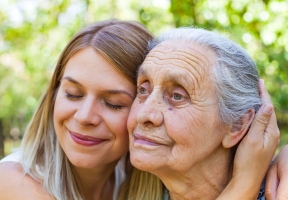

As a polar vortex brings dangerously low temperatures, frigid wind-chill levels, and snowfall to states across the country over the coming days, the Alzheimer’s Foundation of America (AFA) is reminding families caring for someone with Alzheimer’s disease in these areas about steps they can take to protect their loved ones. AFA advises family caregivers to take the following steps to protect their loved one from the cold:
• Know the warning signs of hypothermia. Hypothermia is a concern for everyone in a winter storm, but persons living with Alzheimer’s or related dementia can be at an even greater risk. Some individuals living with a dementia-related illness may find it difficult to detect temperature and weather changes. Look for shivering, exhaustion, sleepiness, slurred speech, memory loss and clumsy motor skills.
• Prevent carbon monoxide poisoning. Risk of carbon monoxide poisoning is increased with the use of the furnace and other heating methods used to keep your house warm. The odorless, tasteless gas can quickly build up to dangerous levels without your knowledge. Carbon monoxide poisoning can cause a dull headache, dizziness, nausea, vomiting, confusion, weakness, blurred vision, shortness of breath and loss of consciousness. Check the heating system at least once a year and install carbon monoxide detectors on each level of the home.
• Take steps to prevent falls. Snow and ice covering the ground increases the risks of slips or falls that can cause serious injury or death. Persons living with Alzheimer’s or a related dementia may also have vision issues that can make it harder to see ice or realize that a walkway is slippery. Keep all stairs, walkways and driveways clear of snow and ice by shoveling often and using rock salt. However, make sure to not over use the salt as this can cause traction issues.
Families who have questions or would like additional information about caring for a loved one with Alzheimer’s disease can contact AFA’s National Toll-Free Helpline at 866-232-8484 and speak with a licensed social worker. The helpline is open 7 days a week; 9 am to 9 pm (ET) on weekdays and 9 am to 1 pm (ET) on weekends.









